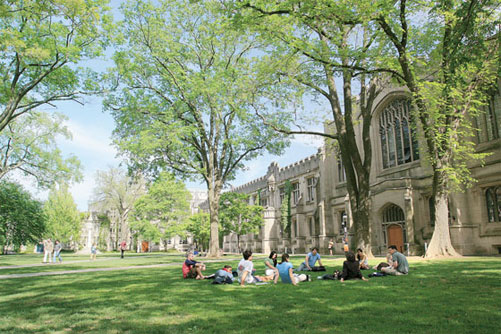Annalink OSHCstudens – As critical societal challenges of great consequence and complexity unfold, from the global pandemic and inequities in access to healthcare, to global warming and forced migration, to authoritarianism and the breakdown of democratic institutions, the arts and humanities have a critical role to play.

As modes of inquiry, the arts and humanities help us to understand these crises and their contexts and translate knowledge into solutions for social impact. If universities are to play a leading role in fostering cultural understanding and advancing democracy and social justice – especially at moments of great uncertainty – they must invest in research and creative practices that provide insight into the human dimensions of these pressing challenges.
Integrated arts and humanities methods and practices are central to this equation. They provide indispensable tools for understanding our geopolitical and historical place in the world, methods that foreground deep observation, listening and empathy and skills to communicate diverse viewpoints and imaginative possibilities. Significantly, they cultivate the compassion that drives social change.
The need for cross-disciplinary research
Education for the 21st century requires investment in both core disciplinary and cross-disciplinary competencies. But far too often the arts and humanities are divested of such resources.
Many universities advocate for a shift in institutional cultures from siloed thinking to a collaborative mindset. But resource-centred management budgets that tie priorities to enrolment, and admissions decisions that reinforce the migration of enrolments to STEM (science, technology, engineering and mathematics) majors, encumber arts and humanities contributions and collaborations.
From crisis to contextual thinking
The pandemic has exacerbated these challenges and brought new opportunities. Administrators and educators have had to pivot in unexpected and strategic ways. In the midst of pandemic lockdowns in the spring of 2020, the Global Arts + Humanities Discovery Theme, an initiative that I presently direct, developed a rapid response grants programme to support pandemic-related research and creative productions.
Nineteen cross-disciplinary projects were funded, including a study of narrative communication between patients and physicians in the development of care plans that mitigate complications arising from COVID-19; a project that models transformational community engagement through the collection of testimonies of Latinas/os/x during COVID-19 in Ohio and making these digitalised stories available for students enrolled in coursework for the health professions; and an art collaboration between dancers in the United States and South Africa that focused on community resilience in the midst of the pandemic.
While the construct of COVID-related solutions may be a limited framework for understanding the applicability and relevance of arts and humanities research and creative expression, humanistic inquiry shapes how we see the world around us, how we conceptualise and categorise knowledge and how we live and adapt.
As the global pandemic illustrates, cultural practices and creative expressions are just as important to survive a pandemic as are medical interventions. Indeterminate in scope and scale, ‘wicked problems’ not only require attention to global systems but to local cultures and histories and therefore compel a shift from crisis to contextual thinking.
Cultural practices nourish human connections in times of deep human peril. Crises may pressure the public to recognise shared vulnerabilities, but recognition of these connections does not in and of itself dismantle hierarchies or social differentials.
Attention to how crisis and catastrophe frameworks function is vital as we face the likelihood that enduring material conditions of precariousness will bring further inequality. Vaccine distribution, for example, has made the deep link between the history of racial disparities and access to healthcare all the more visible and consequential. In other words, seemingly emergent challenges are tied to histories of structural inequities.
Creative and humanistic inquiry helps us to better understand these histories and their present formations. While the arts and humanities are clearly not immune to crisis, they are central to demystifying the logics and histories that underlie crises and envisioning new imaginative and socially just possibilities.
Innovations and interventions
As part of a university-wide initiative to build a sense of intellectual community through cross-disciplinary research and cluster hiring, Ohio State University committed US$2.5 million in annual-rate funding and another US$2.5 million in one-time cash to support the development of the Global Arts + Humanities Discovery Theme.
Since its founding in 2016, the initiative has hired seven tenure-track faculty and 16 postdoctoral fellows, awarded 15 full-year graduate fellowships that provide students with an opportunity to gain cross-disciplinary mentorship and invested US$3.8 million in cross-disciplinary research grants.
Global Arts + Humanities rapid response COVID-19 grants build on its earlier investments in the medical arts and humanities, including a project that drew on scholarly expertise in the arts and sciences, engineering and nursing in the creation of a collaborative-gaming platform for disabled children to connect with others, using human-centred technologies.
In addition to timely investments, building on the initiative’s central commitment to social justice, Global Arts + Humanities has partnered with other units at the university to expand support for research on racial injustice and resistance.
Among the funded projects is a multi-staged seed grant for the Prison Education Exchange Project, which will increase the number and disciplinary range of Inside-Out Prison Exchange courses offered through Ohio State.
If cross-disciplinary research is to be truly transformative and nurture lasting development in thought and action, it must integrate and elevate the arts and humanities across the full breadth of the university mission: research, teaching and community engagement.
It is incumbent upon those of us administering cross-disciplinary programmes to recognise the vital role of the arts and humanities in giving voice to the struggles that contour the human experience and developing the ethical commitments that inspire equitable futures.
OSHCstudents (Source Universityworldnews)






































